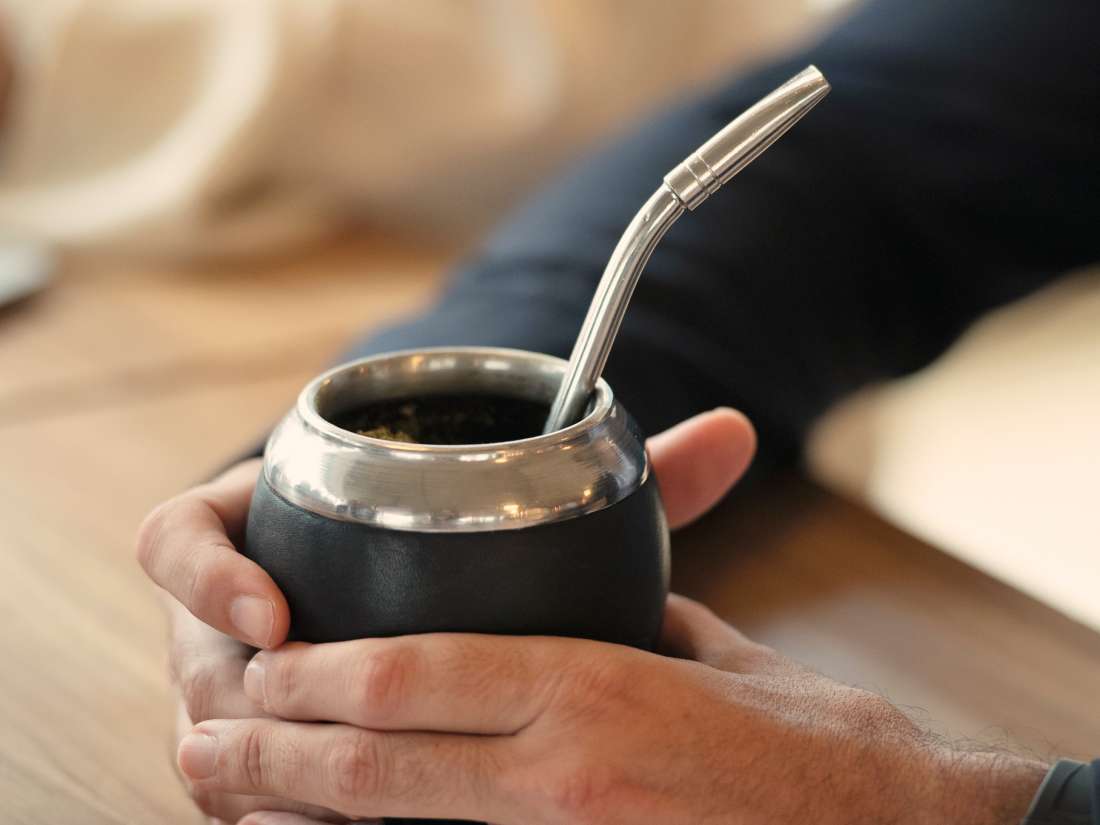Yerba maté is a caffeinated tea made from the leaves of Ilex paraguariensis, a type of holly found in the South American rainforest. In addition to its distinct flavor, yerba maté is rich in vitamins, amino acids, and polyphenols, which are plant compounds that may improve health.
The research on yerba maté tea’s health benefits is still emerging, but some studies suggest that yerba maté may improve cardiovascular health, counteract the health effects of obesity, and more.
Keep reading to learn about five of the health benefits of yerba maté, some possible risks and side effects, and how to consume and prepare it.
According to a 2011 analysis, foods such as ginseng, yerba maté, and soybeans contain an actinobacterium, a type of bacteria that may change the way the body digests fat. This may help a person gain less weight or even lose weight.
Research on animals supports the role of yerba maté in fighting obesity and counteracting its effects. A 2012 study on rats who ate a high-fat diet found that yerba maté changed lipid metabolism. It also lowered some common side effects of obesity, including serum triglycerides and blood glucose. A 2013 study found that yerba maté could reduce inflammation in obese rats.
Yerba maté, like many other plant products, is an antioxidant. This means that the chemicals in yerba maté may be able to counteract the effects of free radicals.
Free radicals play a role in oxidative damage, which has links to numerous health issues, including cancer and heart disease. Many of yerba maté’s health benefits may exist because it is an antioxidant.
Research increasingly points to the role of caffeine in improving heart health, but studies on yerba maté suggest it may offer additional benefits.
Chronic inflammation may damage blood vessels and the heart, leading to heart disease or even heart failure. A handful of animal studies, including a 2013 study on rats, suggests that yerba maté may ease inflammation, especially inflammation related to obesity.
Yerba maté may also help lower low-density lipoprotein cholesterol, which is a type of cholesterol linked to heart disease. A 2011 review suggests that it may even be possible to use yerba maté to increase the effectiveness of statins, a type of medication used to lower cholesterol.
Osteoporosis is a leading cause of bone fractures. According to Centers for Disease Control and Prevention,
A 2012 study compared women who drank at least 1 liter of yerba maté per day for 4 years to those who did not. Even after controlling for other factors that might affect bone mineral density, researchers found that women who drank yerba maté had less bone loss in their spine and neck. This correlates with a lower risk of osteoporosis and a decreased incidence of fractures.
Although the caffeine in yerba maté offers a number of health benefits, it also presents some risks. These risks include:
- an increased risk of pregnancy loss, especially when consumed at high doses
- temporary elevations in blood pressure
- higher blood lipids
People with severe heart disease, uncontrolled high blood pressure, or heart arrhythmias should talk to a healthcare provider before drinking yerba maté.
A 2010 study found an increase in oral and esophageal cancers among frequent drinkers of yerba maté. However, the study’s authors caution that it is unclear if these effects are the result of hot tea generally, or specific ingredients in yerba maté.
More recent research, including a 2019 study, has linked hot drinks to oral cancers. Therefore, to reduce the risk, people who enjoy yerba maté tea should consider drinking their tea warm or cold instead of hot.
To get the most benefits from yerba maté tea, prepare the tea with boiling water, then allow it to cool. Warm and cold teas are not associated with an increased risk of oral cancers, so try drinking the tea with ice or after chilling it in the refrigerator.
People who prefer sweet tea should sweeten the tea with sugar, honey, agave, or another sweetener while it is still hot.
Making yerba maté from loose tea leaves may lead to a fresher tasting tea. It also offers more control over the strength of the tea. Start with a tablespoon of yerba maté per cup of hot water, then adjust to taste.
Many traditional societies prefer sharing yerba maté as part of a community event. Drinking yerba maté from a gourd, which is a special container, facilitates sharing and may improve the taste and experience.
Try preparing the tea in a yerba maté tea gourd, then drinking immediately for best flavor.
The research on the health benefits of yerba maté tea is very promising. However, there is no evidence that yerba maté can cure any specific medical condition, nor that it can or should replace a person’s usual medication or treatment regimen.
Instead, people interested in trying yerba maté should use it as a supplement to their other medications.
People with chronic medical conditions or who use prescription drugs should talk to a doctor who is knowledgeable about herbal medicine before trying yerba maté.
Pregnant or breastfeeding people should speak with a doctor or healthcare provider before trying yerba mate.
